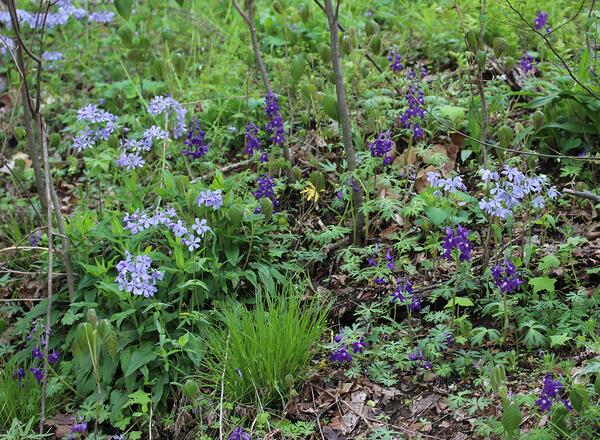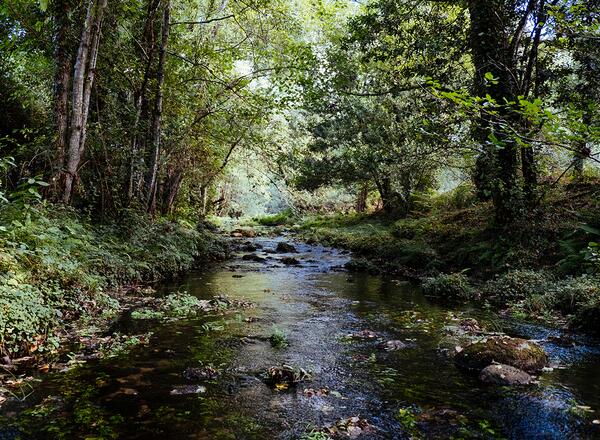Sustaining a Healthy World
We have one world. Collectively, we can each do our part to protect our home. Illinois Extension provides education for awareness and action to sustain healthy environment and ecosystems that support quality living and resilient communities.
Learn about our Flagship Programs

From prairies to woodlands, the natural areas of Illinois are filled with diverse native species. Extension provides education, resources, and stewardship to protect native plants and control invasive species. Locally, Extension’s walks and other programs focus on regional ecosystems, while a comprehensive compilation of grass identification resources is available to all. Check out our resources on invasive species, pollinators, and Illinois grasses, including 25 grass identification videos. Or get involved in providing stewardship for natural areas in your community through the Master Naturalist program.

Nature is good for us. In addition to all the environmental benefits natural areas provide, connections with nature help us directly. Time spent in nature reduces stress, improves our mood, and helps us be active. Through local programs, webinars, podcasts, volunteer programs, and community resources, Extension provides opportunities for Illinois residents to connect with nature through greater understanding, stewardship, and community gardens and natural areas that provide sustainable landscapes. Check out our Everyday Environment webinar series, including nearly 50 videos, our Spotlight on Natural Resources podcast, the community garden locator, and our volunteer Master Naturalist and Master Gardener programs.

Extension connects kids with nature and helps them grow into engaged environmental stewards. All around the state, local educators provide programming to students through Conservation Days, school visits, and summer camps. Extension also provides a water usage activity book and other engaging at-home nature activities families can use. Illinois-Indiana Sea Grant provides many teacher resources including lesson planner explorers on Land and Water Nutrients, Pollution Prevention, and Weather and Climate. Extension also teaches college students through a partnership with John Wood Community College and through outreach events at the University of Illinois Red Oak Rain Garden.

Through our decisions and actions, we can sustain, protect, and manage the water that sustains us. In support of clean water, Illinois Extension plays a central role for nutrient loss reduction, minimizing runoff of fertilizers from cities and farmland to protect downstream water quality. Extension coordinates and facilitates policy, technical, and science groups working with the statewide Nutrient Loss Reduction Strategy partnership. Extension also supports the implementation of nutrient strategy in four priority watersheds and extends nutrient strategy information to the public and through the production of a Biennial Report. Explore more about Nutrient Loss Reduction and listen to our NLRS podcast. Read our NLRS blog. Extension also supports clean, well-managed water through Illinois-Indiana Sea Grant’s Lawn to Lake program, through the Groundwork toolkit for green stormwater infrastructure, and through resources in the Stormwater@Home series.

Shiba 'Shibu' Kar
Bees Birds Butterfly Certified Livestock Manager Citizen Science Climate Community garden Composting Conservation Drainage Energy Energy Conservation Energy Efficiency Environment Forestry Grasses Invasive species Manure Management Master Naturalist Native Plants Outdoor Skills Plant Disease Pollinator Habitat Ponds Recycling Soil Sustainable Agriculture Water Weather Wildlife